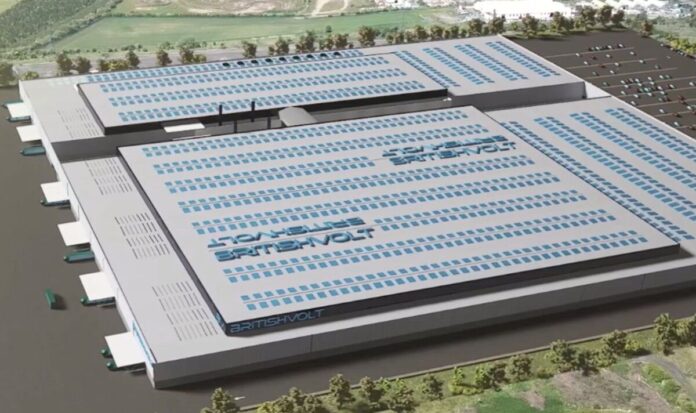Britishvolt’s plans to construct a gigafactory (a plant producing batteries for electric vehicles on-scale) have been rescued from the brink of collapse thanks to a massive investment package. It comes after the Government reportedly refused to hand it £30milllion to keep the UK’s EV dreams alive. The start-up has been scrambling to set up a £3.8billion plant in Blyth in Northumberland, the first of its kind in Britain, and was given a huge boost when the Government committed to help with a £100million cash injection. But just yesterday the future of the plant’s build hung in the balance after a spokesperson for Britishvolt said the Business Department’s advance on funding would not fall into its hands early enough.Luckily, sources close to the matter have said the start-up managed to secure an investment to help the company stay on its feet in the short to medium term, although the identity of the new backers was not revealed, BBC News reports.Britishvolt was founded in 2019 and its launch appeared to be a promising prospect for the UK’s transition to EVs from petrol and diesel cars, the new sale of which will be banned from 2030. Its plans for a large-scale battery-producing plant in the North East was something former Prime Miniser Boris Johnson hailed after unveiling his 10 Point Plan for a Green Industrial Revolution and levelling-up agenda, with the factory’s construction site landing right in the heart of the “Red Wall”. Plans for Britain’s first gigaplant have ben kept alive (Image: Britishvolt) A gigafactory is a large-scale plant producing batteries for EVs (Image: Getty )Mr Johnson made the first funding commitment back in January through the Government’s Automotive Transformation Fund (ATF), a programme worth up to £1billion created to support large-scale industrialisation and for the development of a high-value EV supply chain in the UK, of which Britishvolt was promised a £100million slice. With the help of Government support, it had been expected that the plant in Northumberland would create 300,000 electric battery packs a year if all goes to plan, and would employ 3,000 people and support 8,000 jobs in the region. It is set to be a huge testament to the “UK’s place at the helm of the global green industrial revolution”, according to Mr Johnson.But the firm had ran into difficutlites, citing soaring energy costs as a reason why the startup had been forced to delay production by a total of 18 months, pushing it back to mid-2025.Orral Nadjari, the co-founder and former CEO of Britisholt, told the Financial Times back in August: “It does go hand-in-hand with the fact that we have inflation, we have a recession and we have geopolitical uncertainties. The main facility will be delayed slightly into mid-2025.”READ MORE: Heat pump scheme torn apart as Rishi urged to scrap ‘immoral waste’ BEIS, headed up by Grant Shapps, rejected Britishvolt’s request to hand it £30million early (Image: Getty )Amid delays and financial difficulties, despite the £100million Government grant and other investments from major players such as real estate investor Tritax and asset manager abrdn (which together pumped in a £1.7million investment), Britishvolt executives appealed to ministers in a bid to get their hands on £30million of the Government’s funding early.The company has also signed a deal with the commodities giant Glencore, who has agreed to supply cobalt for its batteries as part of a long-term agreement.But the Department for Business, Energy and Industrial Strategy (BEIS), headed up by Grant Shapps, denied the request.A BEIS spokesperson said: ‘We are determined to ensure the UK remains one of the best locations in the world for automotive manufacturing as we transition to electric vehicles, while ensuring taxpayer money is used responsibly and provides best-value.’But on Monday, a spokesperson said the Government would not provide comment on “speculation or the commercial affairs of private companies”.And despite the apparent challenges Britishvolt appeared to be facing, chief communications officer for Britishvolt Ben Kilbey told Express.co.uk in September that the start-up would be able to deliver “prosperity of the future” as “electric vehicle sales continue to go from strength to strength”. He said: “Clearly electric vehicle sales continue to go from strength to strength, highlighting the pressing need for domestic battery cell production.As we all embark on the energy transition, together, localised battery cell production will give the UK the opportunity to truly shine on the global battery map.”It will also likely encourage increased foreign direct investment. Batteries will be a part of the solution to the energy crisis, that is having a devastating effect on household spending. Businesses like Britishvolt can deliver the jobs and the prosperity of the future. Now, more than ever, private and public enterprises must unite to ensure a successful energy transition.”
UK’s first planned gigafactory saved from the brink of collapse
Sourceexpress.co.uk
RELATED ARTICLES


